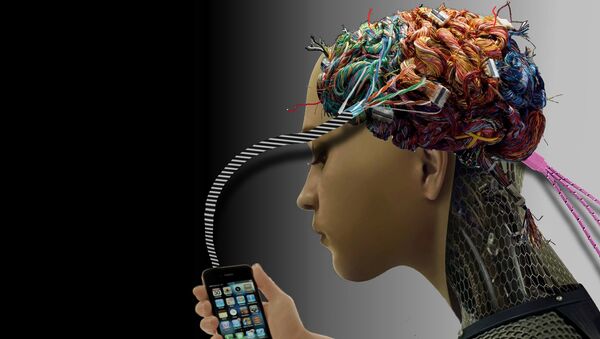Baidu showcased "Little Fish," a translation of its Chinese name 'Xiaoyu Zaijia' on January 5 at a consumer electronics exhibition (CES) in Las Vegas, ahead of its release late in 2017.
Baidu’s family robot ‘Little Fish’ is a Chinese spin on Amazon Echo https://t.co/stomN8Nw4f pic.twitter.com/wwDcErpFxl
— Express Tribune Tech (@ETribuneTech) January 6, 2017
In 2016, conversational computing took off in earnest, with the launch of Amazon Echo and later Google Home. The devices allow users to interact with digital services and devices vocally.
To cater to these devices, digital devices and appliances are increasingly being equipped with voice recognition technology.
I've interviewed a bunch of CMOs, agency people, and other assorted ads folk this week. They all say the winner of #CES2017 is Amazon Echo.
— Lara O'Reilly (@larakiara) January 6, 2017
At the showcase, Baidu representatives suggested conversational computing will soon improve to the point it will be able to recognize a speaker's voice so accurately, voice systems could be used for biometric security purposes.
However, while arguably a stunning innovation, some have serious concerns about the ramifications of voice technology proliferation for personal security and privacy.
This Christmas, people will give away the #privacy of their loved ones in the form of an internet assistant named #Alexa.
— Ok Awesome (@okawesum) December 25, 2016
There are already suggestions hackers can turn headphones plugged into computers and phones into microphones and record conversations, the FBI refuses to confirm whether it is tapping Amazon Echo devices, and an anonymous tech expert has told Sputnik security risks will only increase as devices get smarter.
I’m never getting an Amazon Echo if the government can abuse its powers and use it to spy on and monitor me, like in Orwell’s 1984.
— LibturdHypocrisy (@Rebel4Texas) January 6, 2017
"Devices that 'listen for instruction' hemorrhage personal data. They always have to be listening to ensure it hears when those instructions are invoked. That data will end up feeding individuals more tailored adverts, but also means the police can listen to or access all the data a device has generated and sent to its servers, and that could be instructions or potentially a log of everything that has been said," the anonymous source and cybersecurity expert told Sputnik.
As a result, any individual who owns a conversational computing device must expect their privacy to be virtually non-existent, and for any data the device records to be shared with 'trusted' parties, which could include other businesses, law enforcement agencies or government departments.
The obvious question is, what can concerned users do to protect themselves?
"Use Signal for messaging and Tor for browsing the web. When it comes to connecting more 'smart' things in your home to the Internet, consider the possible consequences. What is this device used for, where does the data go and how can it be used against me to either profile or expose me? Unfortunately, these considerations are often overlooked because most people don't know how good intelligence agencies are at data mining."
US #intelligence chief says the #IoT will create new chances for surveillance and #hacking. https://t.co/i6ol6E10Xc pic.twitter.com/jHWVfELTO2
— eprentise (@eprentise) December 23, 2016
"One might think 'so what if they know I watch the news every night?' but actually, they know you are home at that time, they know what news channel you watch and they will have a rough idea on where you stand on current affairs based on the news you read/hear/watch. That's more than enough to start a profile."
The source adds that unless an individual and their friends buy into good operational security and personal security, there will always be data attached to them.
"Companies will always get hacked, and the data they store will become public, so 'good' and 'bad' guys will have access to it, potentially. Anyone who you wouldn't tell your closest secrets to should be treated as a 'bad' guy, regardless of how nice an app or company is."


